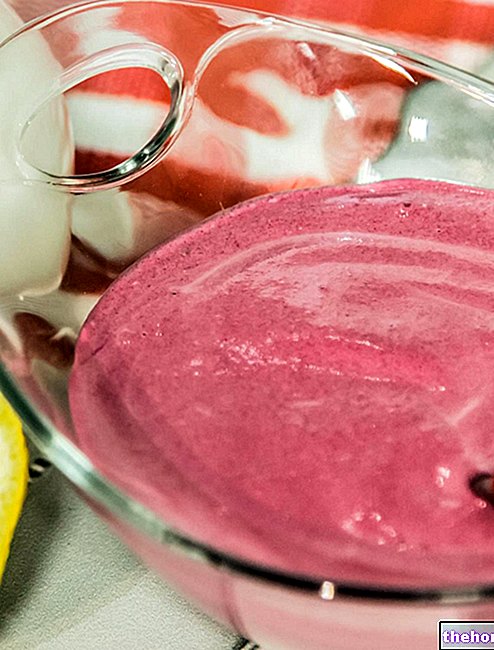Today we will bring to the table an extraordinary tuber, unfortunately often little valued. I'm talking about Jerusalem artichoke, which recalls the taste of artichoke and the appearance of the potato. The particularity of Jerusalem artichoke, in addition to its flavor, lies in its high content in terms of fiber (inulin, in particular) and in the modest quantity of starch: for these characteristics, Jerusalem artichoke is a panacea for the diabetic's diet. Today we see how to cook sautéed Jerusalem artichokes with parsley and garlic.
Video of the Recipe
Problems with playing the video? Reload the video from youtube.
Identity Card of the Recipe
- 102 KCal Calories per serving
-
Ingrediants
- 700 g of Jerusalem artichoke
- 2-3 tablespoons of dry white wine
- 1 clove of garlic
- 1 sprig of parsley
- Untreated lemon zest
- 2 tablespoons of extra virgin olive oil
- q.s. of salt
- q.s. of pepper
- If necessary: 50 ml of vegetable broth or water
Materials Needed
- Mandolin or knife
- Bowl
- Latex gloves (optional)
- Grater (for the lemon zest)
- Chopping board
- Knife
- Pan with lid
Preparation
- Wash the Jerusalem artichokes thoroughly in running water, eventually rubbing them with a brush to remove impurities and traces of soil.
- Dry the Jerusalem artichokes and cut them into slices with the help of a mandolin or using a simple knife.
- As they are cut, dip the Jerusalem artichoke slices in a solution of water and lemon juice.
Did you know that
Jerusalem artichokes, just like artichokes, tend to oxidize quickly: for this reason, it is advisable to cut them and immediately dip them in a solution of water and lemon juice (the citric acid contained in the lemon slows down their oxidation).
For the same reason, in order to prevent the hands from turning black, it is advisable to wear latex gloves or to rub the skin with lemon before cutting the Jerusalem artichokes.- Pour 2 tablespoons of extra virgin olive oil in a pan that is already very hot and flavored with a clove of garlic. Those who love the flavor of garlic can crush the pulp directly in the oil; those who do not particularly appreciate it can brown the whole clove in the oil and remove it after a few minutes.
- Drain the Jerusalem artichokes from the acidulated water and pour them into the flavored oil. Brown over a high flame.
- Salt and pepper to taste. Deglaze with the white wine, cover the pan with the lid and cook over moderate heat for 20-25 minutes, stirring occasionally.
- If the Jerusalem artichokes are excessively dry, it is advisable to add half a glass of hot water or vegetable broth during cooking.
- At the end of cooking, the Jerusalem artichokes should appear firm, but not crunchy. Then turn off the heat and flavor with plenty of chopped parsley and lemon zest.
Alice's comment - PersonalCooker
It is a shame that Jerusalem artichokes are considered "forgotten tubers" because they are faithful allies of our health and our line: they provide very few calories, they are a source of inulin, vitamin A, B vitamins, amino acids (asparagine and arginine) and many Mineral salts. Then the taste is delicious: in short, have I convinced you to try them?Nutritional values and Health Comment on the recipe
The Jerusalem artichokes sautéed are a dish that falls within the group of side dishes.
These tubers have a more significant energy intake than that of vegetables, but lower than that of potatoes.
In the recipe, calories are essentially supplied by carbohydrates and lipids in the oil. The breakdown of fatty acids is good, cholesterol is absent and fiber is abundant.
The Topinambur Trifolati are a dish suitable for the diet of celiac and lactose intolerant. The high intake of inulin can be useful in cases of constipation and diabetes.
Topinambur Trifolati are suitable for any diet and the portion ranges between 100-150g (100-150kcal).




























